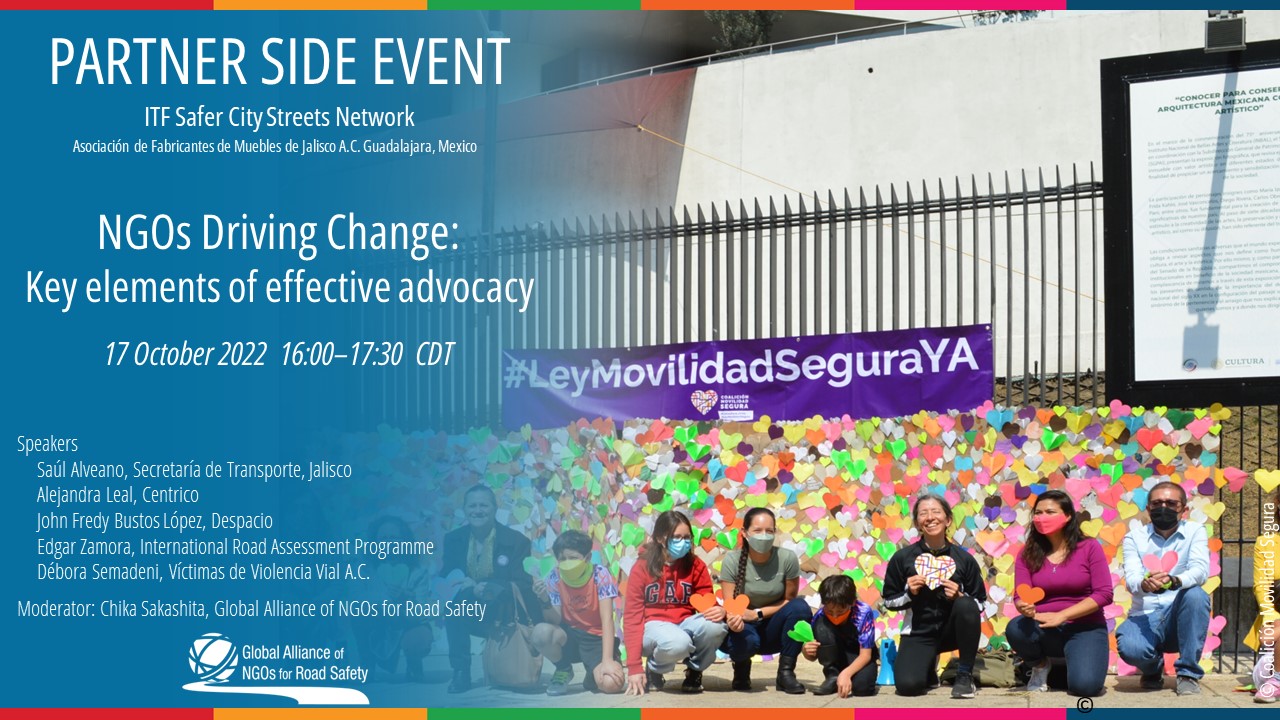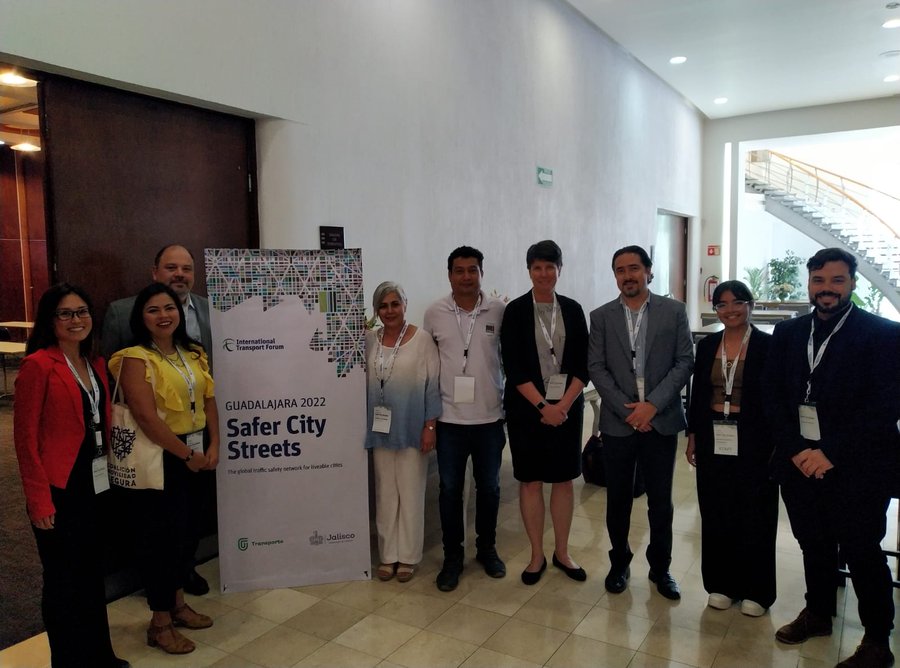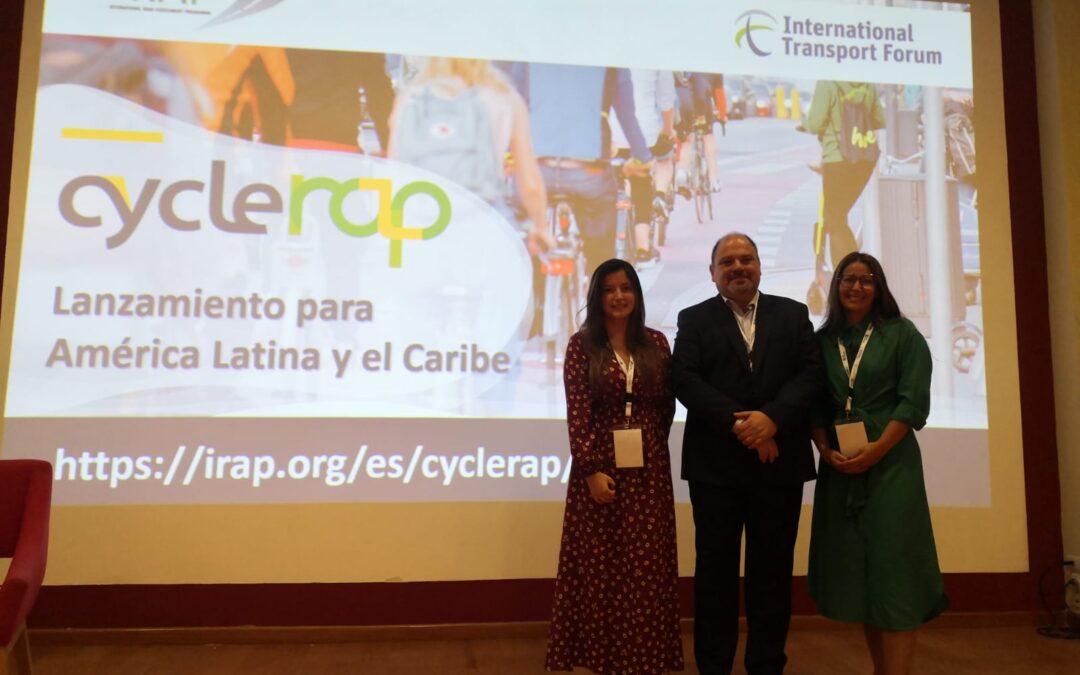Following its successful global launch in June, CycleRAP has today launched in Latin America at the 7th Meeting of the International Transport Forum (ITF) Safer City Streets Network Event in Guadalajara, Mexico.
The launch follows successful pilots in Europe and four years of research development in consultation with global cycling and safety experts.
CycleRAP is a globally applicable and evidence-based model which enables easy, affordable, and fast methods of evaluating bicycling infrastructure for safety.
It is designed to evaluate risk, irrespective of the type of facility (on- or off-road) and for all crash types relating to bicyclists and light mobility vehicles.
The model uses crash initiation factors, crash triggers, and severity determinants to calculate the CycleRAP safety scoring.
Speaking from the launch, iRAP Safer Journeys Regional Lead for The Americas Edgar Zamora said, “Road safety is a critical issue which needs to be addressed in Latin America to ensure that bicycling and light mobility options can continue to support new and greener mobility choices.
“Cities that aim to promote sustainable urban mobility must increase the number of cycling trips. However, cyclists are vulnerable road users, with crashes usually underreported even though bicycle crashes frequently demand users’ hospitalization.
“Safe infrastructure and safe speeds are essential to encourage more people to switch to more sustainable modes of transport, and to ensure that those who do can travel safely and comfortably,” Mr Zamora said.
“Safe infrastructure and safe speeds are also essential if countries are to meet the Decade of Action for Road Safety 2021-2030 target of a halving of road deaths and injuries,” he added.
CycleRAP is designed to support transport authorities and other organisations such as urban planners, bike share and micro mobility sharing service providers, bicycle courier and food delivery companies, and school communities involved in addressing or advocating for safer facilities for bicyclists and users of other light mobility vehicles.
Specific uses include:
- Addressing explicit or general safety concerns for bicyclists and light mobility users
- Evaluating existing network’s capacity to cater for rapidly increasing demand or increase in new vehicle types
- Prioritise funding and investment into bicycling and light mobility infrastructure
- Assist cities formalising rapid response measures for bicyclists post COVID19
CycleRAP will be available for pilot projects in the region through a network of iRAP Trusted Suppliers.
The CycleRAP Launch included presentations from iRAP, PTV Group and the Secretariat of Mobility Colombia on the importance of safe biking and light mobility, modelling mobility, the CycleRAP model and pilot projects, and how to implement CycleRAP in your city.
For more information:
- To learn more about CycleRAP, visit irap.org/cyclerap
- For more information on the global launch, click here
- Register your interest for CycleRAP updates here
- For enquiries on using CycleRAP or becoming an industry partner, contact Monica Olyslagers, iRAP’s Global Innovation Manager and Cities Specialist by email monica.olyslagers@irap.org
ALSO DURING THE EVENT

During the ITF Safer City Streets Network Event, Edgar also presented in the Global Alliance of NGOs for Road Safety Side Event on NGOs Driving Change: Key Elements of Effective Advocacy.
NGOs have a vital role to advocate for decision maker commitments to, and funding and implementation of, evidence-based interventions – interventions, such as iRAP, that are known to deliver death and injury reductions.
NGO advocacy is a journey: from advocating for evidence-based interventions, obtaining commitments from decision makers, to implementation of evidence-based interventions, and follow up to ensure the deliver of commitments and promotion of success.
The side event included presentations from experienced NGOs who have successfully influenced implementation of interventions that have saved lives and the key elements that supported success.
Participants learned how these interventions can be replicated and how NGOs and government may work together to put more evidence-based interventions in action.

Image credit: Global Alliance of NGOs for Road Safety
Header image credit: Secretariat of Mobility (Secretaria Distrital de Movilidad)


















